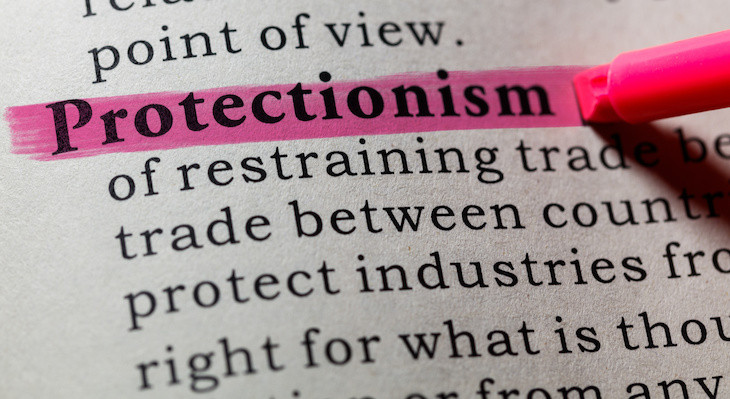Argentina’s Economic “Protectionism”
By Neil Tamhankar and Gabby Skinner
Intro to Protectionism
Protectionism is an economic policy some countries enforce on their trade. They reduce competition among their domestic industries by taxing foreign imports (these taxes are known as tariffs). Taxing imports causes prices for foreign goods to increase, which leads consumers in the country to shift to lower priced domestic goods, benefiting domestic businesses. Over the course of history, countries have sometimes deemed it necessary to pass protectionist policies. A notable example of this can be seen during the Great Depression. The Smoot-Hawley Tariff Act of 1930 raised import duties to protect American businesses. Import duties are taxes collected on imports and exports, also known as tariffs or import taxes. This act increased tariffs to about 20%. This led to at least 25 countries retaliating with tariffs on American goods. Overall, this act worsened the conditions of the Great Depression. In recent years, Argentina has begun to learn the same lesson that the United States did during the Great Depression: protectionist policies often worsen economic conditions, not improve them.
Argentina’s Protectionist Policies + Effects on Economy
Argentina put its protectionist policies in effect to protect its own industries, particularly the agricultural and manufacturing industries. The policies had the reverse effect, greatly harming those industries and the Argentinian economy as a whole. One such policy was limiting imports by raising tariffs so that Argentinians would buy domestic goods instead of foreign goods. These severely high tariffs led Argentina to enter into trade wars with many nations, who accused Argentina of trying to isolate itself from the world markets. Argentina also limited exports, which made it harder for suppliers in Argentina to sell their goods since they lost the foreign market. With less people buying their goods, the suppliers were forced to raise prices. The end result was high inflation and unemployment in Argentina. Inflation has reached as high as 55.1% in the past year.
Repercussions of protectionism
Overall, Argentina’s policies on international trade have not proven very helpful. The aim was for local businesses to have less competition. Unfortunately, prices for goods in Argentina have skyrocketed. The inflation rate in Argentina is 55.1%. To put that into perspective, the U.S. inflation rate is at 8.5%. The policies put consumers' jobs at risk. As of 2019, the unemployment rate in Argentina was 11.67%. In 2019, the U.S. unemployment rate was 3.6%. Protectionism leads to a decrease in trade and loss of jobs. This outcome is similar to the U.S. Tariff act of 1930. Both lead to hostility between other countries, unemployment, and inflation.

